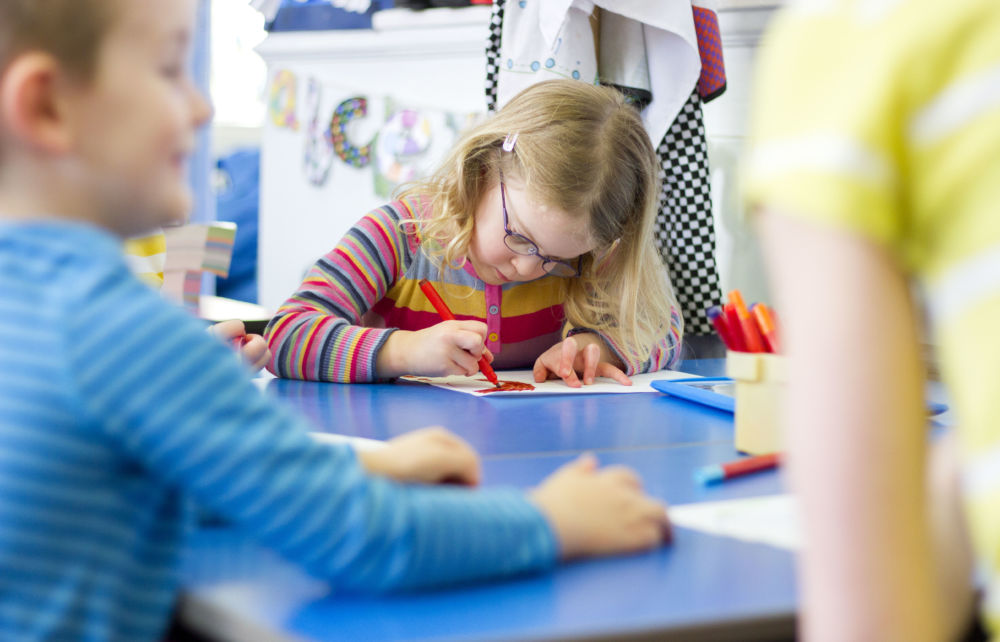A new trial will aim to get glasses to four- and five-year olds who need them in order to improve their maths and reading skills, the Education Endowment Foundation (EEF) announced today.
Pupils in 100 schools will take part in a trial of Glasses for Classes, a programme developed by a team at the University of Leeds and the Bradford Teaching Hospitals NHS Foundation Trust.
The NHS recommends that all children receive an eyesight test in their first year of school. Roughly 10–15% of children fail their eyesight test, and of these around a third are not taken to the opticians to obtain glasses. However, schools are not told these results. As a result, it is thought many children with visual impairment may experience misdiagnosed problems at school with reading and counting.
In the EEF trial, which will be independently evaluated by a team from the University of Nottingham, results of children’s eye tests will be shared with schools, as well as parents. Staff will be trained to support pupils and their families to get glasses and encourage pupils to wear them. Funding will be provided for a second pair of glasses for pupils to keep at school and each participating school will appoint a member of staff to manage the relationship between school, families, opticians and health services.
Earlier research by Dr Alison Bruce, Director of Vision Research at the Born in Bradford programme, found that failing to treat undiagnosed eye conditions – like short-sightedness, or astigmatism – can hold back the development of literacy skills. For example, it is more difficult to learn to read if you can’t see well enough to discriminate the difference in how letters appear, or see what the teacher is pointing to. While these issues can affect all children, those from disadvantaged backgrounds are more likely to go without a diagnosis.
Sir Kevan Collins Chief Executive of the EEF, said:
“Making sure all young children with possible eyesight problems are identified and supported with glasses or other treatments is a clear win-win, helping improve health as well as educational opportunities.
“Our new trial will find out how best schools can provide practical support to parents so that no child faces this unnecessary barrier to learning.”
Professor Mark Mon-Williams, lead academic from the University of Leeds, said:
“Poor eyesight in young children can be enormously difficult for parents or teachers to detect, and even where it’s obvious, there is currently no mechanism to ensure vision screening results are ever acted upon.
“We believe this project shows great promise and could help the large number of children with visual problems across the country to have a more positive educational experience, and ensure they have the good start in life that every child deserves.”
Dr Alison Bruce, Director of Vision Research at the Born in Bradford programme, added:
“Even where obvious, there is currently no mechanism to ensure vision screening results are actioned. This can leave the condition untreated throughout a child’s early school years, with known potential to impact on their future educational attainment.
“This new research, which will trial the sharing of information between health and education services, provides the opportunity to influence national policy in the future.”

If you are interested in finding out more:
Visit our Vision Screening page.
Attend out Vision Screening Event on 24 April. Sign up here.
Watch Alison Bruce talk about the scheme on BBC News.